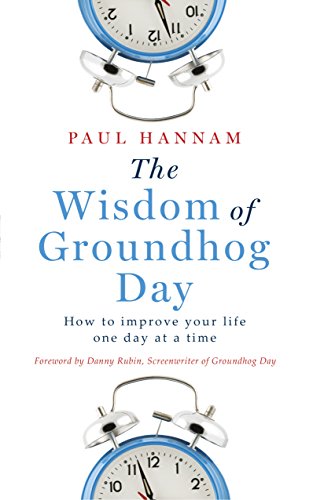Podcast Summary
Understanding and Managing Envy and Jealousy: Envy and jealousy are normal emotions, even for successful individuals. Rather than feeling guilty, we should focus on understanding and managing these emotions to lead a more mindful and contented life.
Envy and jealousy are universal emotions that everyone experiences, regardless of their success or status. It's easy to believe that others have it all and that their lives are perfect, but the truth is that even the most successful and accomplished individuals feel these emotions. This realization should help us feel less alone and judgmental towards ourselves. Instead of making ourselves feel guilty for having these feelings, we should focus on understanding and managing them. By recognizing that envy and jealousy are formidable blocks in our lives, we can work towards breaking through these barriers and moving forward in a more mindful and contented way.
Understanding and Overcoming Envy and Jealousy for Personal Growth: Envy and jealousy are normal emotions, but we must work on overcoming them to avoid hindering our personal growth and to develop a more positive mindset.
Envy and jealousy are common emotions that we all experience to some degree. It's important to recognize that these feelings are normal and not something to feel guilty or ashamed about. Studies show that a significant percentage of both men and women admit to feeling envy within the past year. However, as we age, we tend to envy less, partly due to gaining a more realistic perspective on life. Overcoming envy and jealousy requires intentional effort and maturity. These negative emotions can hinder our personal growth and prevent us from celebrating the success of others. Instead of judging ourselves, we should focus on purifying and neutralizing these feelings to foster personal development and a more positive mindset.
Differentiating Jealousy from Envy and Overcoming Their Effects: Recognizing jealousy and envy is essential for our well-being. By becoming aware of these emotions and cultivating a non-judgmental mindset, we can overcome them and foster a more positive outlook on life.
Jealousy and envy have subtle differences, with jealousy being a passive feeling of wanting what someone else has, while envy is a more extreme version where you not only want it for yourself but also believe the other person doesn't deserve it. Recognizing which one we're struggling with is crucial because envy can be harmful to ourselves and our relationships. Jealousy and envy drain our energy and focus, directing it outward instead of inward and forward. The first step to addressing these feelings is awareness, understanding the different types of jealousy that manifest in our lives. By refining our awareness and creating a non-judgmental space, we can begin to overcome jealousy and embrace a more positive mindset.
The Dangers of Comparing Our Lives to Others: Focus on your own journey, appreciate what you have, and remember that everyone faces their own challenges. Comparing ourselves to others only hinders our own growth and happiness.
It's important to zoom out and look at the bigger picture when comparing our lives to others. Jay Shetty emphasizes that focusing on specific aspects can lead to feelings of jealousy and inadequacy. By zooming out, we realize that everyone goes through trials and challenges, and no one has a perfect life. We may envy someone's success or possessions, but when we examine their entire story, we may find that they've faced their own difficulties. Instead of fixating on what others have, we should focus on our own journey and be grateful for what we have. Ultimately, comparing ourselves to others only hinders our own growth and happiness.
Differentiating Genuine Desires from Society's Influence: By cultivating self-awareness and focusing on our own personal growth, we can break free from external influences, learn from others without jealousy, and create meaningful lives.
It's important to differentiate between what we genuinely want and what society has conditioned us to want. We often find ourselves attracted to things because we believe they will bring us happiness or success, but it's crucial to question whether these desires are truly our own. By cultivating self-awareness and asking ourselves if something is genuinely important to us, we can break free from external influences and focus on our own personal growth. Transforming jealousy into admiration and attraction allows us to learn from others without feeling the need to replicate their achievements. Instead of fixating on what others are doing, we should invest our energy in self-improvement and take action towards our own goals. By investing in ourselves, we can create meaningful and fulfilling lives.
The Dangers of Jealousy in the Age of Social Media: Jealousy can arise from comparing our lives to others' highlight reels on social media. To overcome jealousy, seek to understand others, transform it into admiration, and choose to be positive and supportive.
Jealousy often arises from not knowing the full story of someone's life. Social media can contribute to feelings of jealousy because we only see a small percentage of someone's life, leading us to compare ourselves and perceive others as having a better life. To overcome this jealousy, it is important to seek more information and understanding about people we know less about. Instead of feeling jealous, we should transform it into admiration and attraction. Additionally, we must learn to empathize with others' pain and celebrate their success. By celebrating others' wins, we create a positive energy in our own lives that can fuel our own success. It is crucial to recognize that jealous thoughts do not define us and choose to be positive and supportive instead.
Overcoming jealousy by changing our mindset and embracing appreciation and personal growth.: Replace jealousy with positive thoughts and admiration for others, learn from their success, and focus on personal growth for lasting happiness.
Rewriting the scripts in our minds and celebrating others can help combat jealousy and increase our own positivity and energy. Jay Shetty emphasizes the importance of replacing jealous thoughts with positive affirmations and admiration for others. By studying their success and appreciating their accomplishments, we can learn and grow ourselves. Jealousy stems from a fear of being left out, rejected, or judged, which often comes from past experiences. To address this fear, we must reflect on where it is coming from and evaluate the groups or situations we are trying to be a part of. Ultimately, by embracing a mindset of appreciation and focusing on personal growth rather than comparison, we can find lasting happiness in the infinite theater of life.
The Importance of Authenticity and Building Unique Relationships: Embrace your true self and seek out relationships that align with your values, adding something special to others' lives. Avoid trying to fit into molds and embrace diversity and genuine connections. Overcome jealousy by widening your perspective and finding gratitude in life's miracles.
It's important to find a group or community that aligns with our values instead of trying to fit into a group that we don't truly belong to. We often try to mold ourselves into someone else's idea of what a friend should be, but that only makes us replaceable and prevents us from being our true selves. Instead, we should focus on building unique relationships with people by adding something special to their lives. It's not about being the best or fitting into a hierarchy, but about embracing diversity and genuine connections. Overcoming jealousy is possible by widening our perspective, being curious, and rewiring our thoughts. Finding gratitude in the miracles that surround us can also bring a sense of wonder and fulfillment to our lives.
Embracing Wonder in Everyday Life: By practicing mindfulness and embracing the awe-inspiring aspects of life, we can cultivate gratitude, enhance our mood, and find beauty in the world around us. Incorporating the "Be Here. Wow" mentality can transform our daily experiences into moments of wonder.
We should embrace the practice of "Be Here. Wow" in our daily lives. By reflecting on the simple yet incredible facts of life and allowing ourselves to be amazed, we can experience wonderment and awe. This mindful approach can positively influence our mood, cultivate gratitude, and help us appreciate the beauty of the world around us. We are reminded to marvel at the vastness of the cosmos and the astonishing events that had to happen for us to exist. By consciously embracing astonishment, we can transform each moment of our wondrous lives. We are encouraged to incorporate the practice of "Be Here. Wow" into our daily routine and actively seek wonder in our day-to-day experiences.













